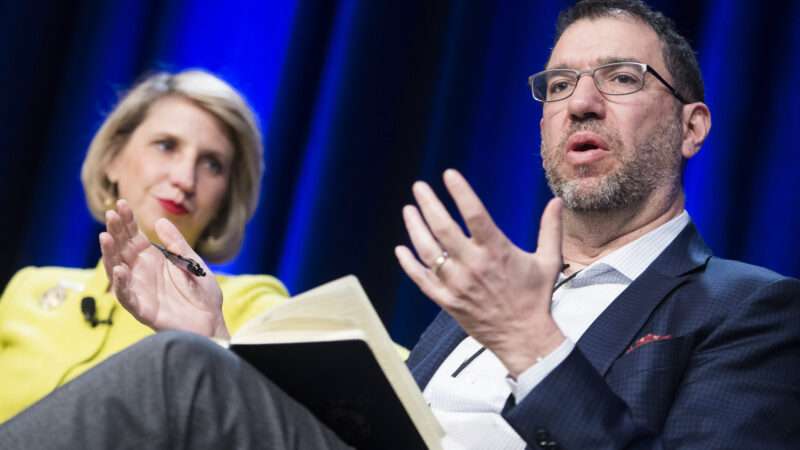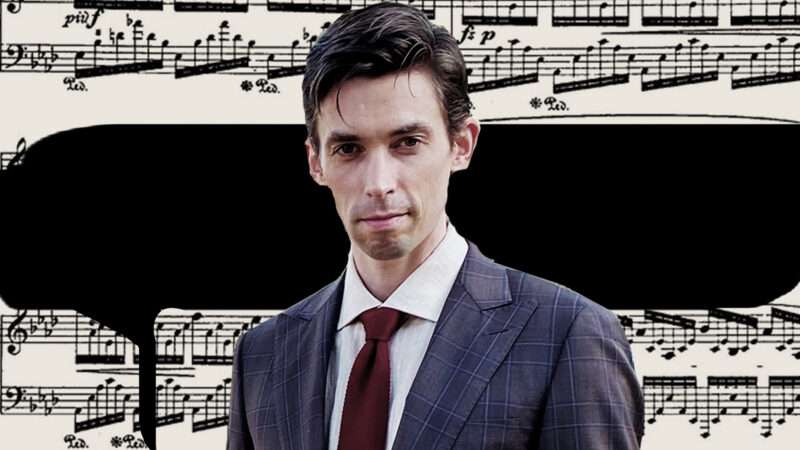
The Biden administration’s COVID-19 czar thinks Americans didn’t sacrifice enough during the pandemic. At the risk of being unpopular, former White House senior COVID-19 adviser Andy Slavitt knows who to blame for the 600,000 American lives lost during the pandemic: It’s you, the viewer.
Slavitt resigned from his position on the Biden administration’s pandemic policy team last week and has since been making the rounds to promote his book Preventable. A big part of his message is that had individuals done more to curb their own selfish desires for social interaction during the last 18 months, we would have seen far fewer COVID-19 deaths.
“I also think we all need to look at one another and ask ourselves, ‘what do we need to do better next time?'” said Slavitt during a Monday appearance on CBS This Morning. “Being able to sacrifice a little bit for one another to get through this and save more lives is essential.”
“Preventing the spread of the disease is really about a couple of simple things; not breathing near one another in large spaces. That’s really it if you want to be overly simple about it. That requires a bit of sacrifice and change,” he continued in a clip posted to Twitter by conservative journalist Tom Elliott.
Biden’s Covid czar, @ASlavitt, says the pandemic wouldn’t have been as bad if Americans “had sacrificed a little bit” more.
Avoiding social interaction "requires a certain amount of sacrifice and change." pic.twitter.com/H6fGFv5hLi
— Tom Elliott (@tomselliott) June 14, 2021
His comments sparked some heated backlash from folks who pointed out that people did sacrifice a lot as part of that interminable two-week effort to “flatten the curve.”
Pajama class that stayed home and got paid during the pandemic doesn’t think the rest of Americans did enough. https://t.co/tXhXklBZqD
— Karol Markowicz (@karol) June 14, 2021
Like True Socialism, True Lockdowns have never really been tried, and any failure of our model is on you, you selfish bastard, because you didn’t sacrifice enough… or something. https://t.co/y8gPt5OZVb
— Matt Kibbe (@mkibbe) June 14, 2021
Indeed, anyone who remembers the first few months of the pandemic should be keenly aware of how readily Americans heeded the advice of public health officials to stay in their homes. Whole industries shut down. Churches were closed. Traffic volumes were nearly cut in half, and public transit ridership fell over 90 percent in some cities. Weddings were postponed. Funerals were canceled.
Whatever the benefits in terms of lives saved by this extreme social distancing, it obviously wasn’t a viable long-term strategy for controlling the pandemic.
The pandemic wouldn't have been as bad if public health officials had realized most people regard in-person social interaction as 'essential', are not bad people for it, and that a strategy centered around expecting them to sacrifice it for months at a time was never gonna work. https://t.co/cPgqfkYE8P
— Nate Silver (@NateSilver538) June 14, 2021
By focusing on the supposed selfishness of the American public, Slavitt skates over the numerous failures of government officials to embrace alternatives to societywide isolation and lockdowns as a means of preventing COVID-19 deaths.
The government screwed up testing, slow-rolled vaccine approval, discouraged masks in the early days, told people to wash their groceries, and closed parks and beaches.
But it is you, the citizen, who did it wrong. https://t.co/oUphysiMb6
— Robby Soave (@robbysoave) June 14, 2021
The U.S. government’s initial messaging on masks dishonestly downplayed their effectiveness. Even when officials changed their tune, they were incredibly slow at approving new facilities needed to pump out high-quality N95 masks.
Likewise, federal regulators actively suppressed private efforts to create COVID-19 tests that might have made a test-and-trace strategy workable. It wasn’t until December 2020 that the Food and Drug Administration approved an over-the-counter at-home rapid COVID-19 test.
During the height of the pandemic last winter, when some 3,000 people were dying every day from the virus, regulators were still denying approval of vaccines that were already at work saving lives abroad.
Slavitt gives a nod to some of these problems in his remarks on CBS, saying that “we had a set of technical mistakes with the testing and the [personal protective equipment] that we know about.”
To prevent a resurgence of COVID-19 deaths this coming winter, however, his advice still hinges, in part, on telling people to just stay inside.
When we practice social distancing, “we reduce the amount of spread pretty dramatically,” says Slavitt. “If the variants come back in the fall, as they will, the people who are unvaccinated are going to have to pay serious attention to that and consider getting vaccinated.”
FREE MARKETS
California—the capital of COVID-19 restrictions—has fully and officially reopened. Starting today, all businesses statewide will be allowed to operate at 100 percent capacity, inside and out, for the first time since March 2020.
California Gov. Gavin Newsom is also expected to sign an updated order later this week clarifying that employees who are vaccinated need not wear masks or socially distance in the workplace. Earlier guidance from state officials had said they could only go maskless if everyone around them was vaccinated as well.
Not everything is completely back to normal. People attending large events will have to show proof of vaccination. Newsom also has yet to rescind the emergency declaration he used to shut down the state in the first place.
FREE MINDS
U.S. Attorney General Merrick Garland has said that the Department of Justice (DOJ) will tighten its rules for when it seizes lawmakers’ data, reports The New York Times. The announcement comes after the recent revelations that the DOJ, under the Trump administration, subpoenaed Apple for the records of several Democratic members of Congress as well as reporters for the Times, CNN, and The Washington Post. Former Trump White House Counsel Don McGahn’s Apple subscriber information was also subpoenaed.
People who haven’t been elected to Congress will have a wait a little longer for the DOJ to start respecting their privacy.
QUICK HITS
• People are going back to stores and restaurants, but not the office, reports The Wall Street Journal.
• Rep. Marjorie Taylor Greene (R–Ga.) visits the U.S. Holocaust Memorial Museum in Washington, D.C., where she apologizes for comparing mask mandates to that genocide.
• Some 7 million Americans are behind on their rent, according to the latest Household Pulse Survey released by the U.S. Census Bureau. That’s despite the $46 billion Congress has dedicated to rent relief.
• President Joe Biden and European Union officials have agreed to a five-year suspension of tariffs on select goods, including aircraft, wine, and cheese, reports NPR.
• Housing prices are at all-time highs. Will we see a repeat of 2008?
• Like stoner metal and The Simpsons? There’s a band for that.
from Latest – Reason.com https://ift.tt/3zCqXA3
via IFTTT





